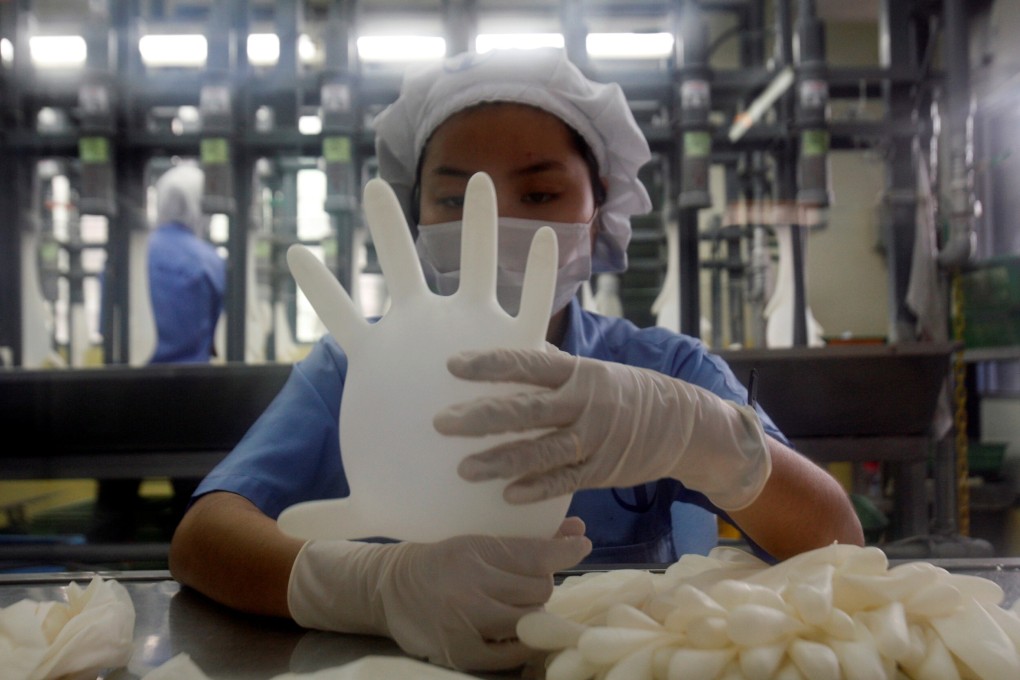Malaysia slams US ban on rubber glove maker Top Glove after claims company used forced labour
- Import ban on the company, amid suspicions of forced labour, is ‘unfair’ and ‘baseless’, says Human Resources Minister N. Saravanan
- The firm’s gloves have been in high demand due to the coronavirus

US Customs placed a detention order on imports of products made by subsidiaries of Top Glove, the world’s largest glove manufacturer, last week over suspicions it was linked to forced labour.
But Malaysia’s Human Resources Minister N. Saravanan blasted the decision, saying problems at the company had been exaggerated and demanding the US prove the allegations.
“I instructed the Labour Department to investigate and it was found most of the accusations are baseless. There are some shortcomings which can be resolved, such as accommodation, but it’s not as bad as [agencies abroad say],” the minister said.
“It is unfair to come into a country and just ban the industry,” he added, saying that Top Glove had been “blamed and accused for no reason”.
He said he would visit the company and invite representatives of the US embassy to join him.